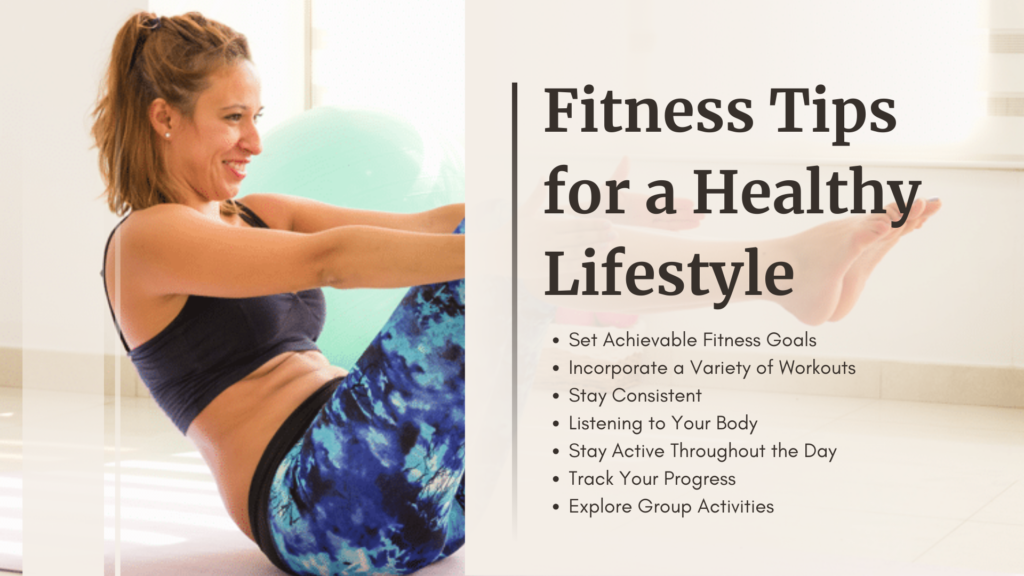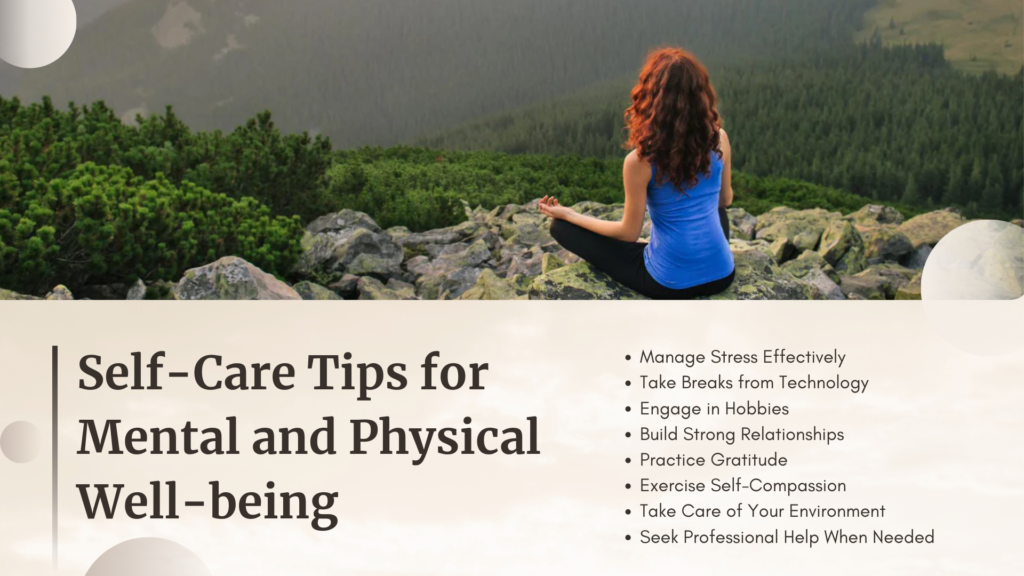Good health and wellness are critically essential for this fast-paced world. A balanced approach towards fitness, nutrition, and self-care can prove very effective for quality life improvement. Here, we’ll discuss practical and effective health and wellness tips on how to keep fit, eat right, and take care of yourself.
Fitness Tips for a Healthy Lifestyle
Regular physical activity is crucial in maintaining a healthy body and mind. Here are some fitness tips to incorporate into your daily routine:

- Set Achievable Fitness Goals Begin with a set of achievable and realistic fitness goals aligned with your lifestyle and level of fitness. Be it weight loss, muscle gain, or improvement in endurance, these goals will help keep you motivated and directed toward the target. Break your long-term goals into smaller, more manageable, and rewarding milestones.
- Incorporate a Variety of Workouts You can achieve fitness by practicing a variety of exercises involving cardio, strength training, and flex work. These include some of the following:
- Cardio Exercises: Running, cycling, swimming
- Strength Training: Bodyweight exercises, weightlifting
- Flexibility Training: Yoga, and stretching routines Variations work well for you, resulting in better outcomes and for fun, preventing monotony.
- Stay Consistent Consistency is key to achieving long-term fitness goals. Schedule your workouts and make them a non-negotiable part of your day. Even 20-30 minutes of exercise daily can significantly impact over time.
- Listening to Your Body Overtraining is known to cause injuries and burnout. Take rest days and listen to the signals that your body is sending you in case of fatigue or overexertion. In case of persistent soreness or fatigue, adjust your routine or seek professional advice.
- Stay Active Throughout the Day Small activity changes can amount to a substantial increase in movement by taking little walks, always opting for using stairs instead of the elevator at work, or just stretching out on those short breaks.
- Track Your Progress You can track how you work out and stay on course with what you have in mind to help measure your improvement over time. Use apps or a journal to track your victories. Perks of small victories keep a person motivated.
- Explore Group Activities You can engage in group fitness classes or team sports, which provide additional motivation to make exercise a social activity. You share goals and progress with others and are held accountable and enjoy it.
Nutrition Tips for Optimal Health
A well-balanced diet is the cornerstone of a healthy lifestyle. Following these nutrition tips can help you fuel your body with the right nutrients:

- Eat a Balanced Diet Include a variety of foods in your diet to ensure you get essential nutrients. A balanced meal should contain:
- Proteins: Lean meat, eggs, tofu, lentils
- Carbohydrates: Whole grains, fruits, vegetables
- Healthy Fats: Nuts, seeds, olive oil Mix in colorful fruits and vegetables for a variety of vitamins and antioxidants.
- Stay Hydrated Drinking water is very important to everyone’s general health. Attempt to drink at least 8-10 glasses of water daily to ensure your body stays hydrated and runs at maximum performance. But this would be different concerning the level of activity and climatic conditions.
- Avoid Processed Foods Minimize the consumption of processed and sugary foods, as they can lead to weight gain and health issues such as diabetes and heart disease. Opt for whole, unprocessed options to support better nutrition.
- Practice Mindful Eating Eat slowly and pay attention to hunger cues to avoid overeating. Mindful eating can help improve digestion and prevent unnecessary weight gain. Turn off distractions like TV or smartphones during meals to focus on your food.
- Plan Your Meals Planning your meals will make you choose healthier instead of unhealthier, and avert unhealthy snacks. Nutritious Meal Preparation Achieves Your Fitness Goals. The idea of meal prepping saves time from tempting to eat out in restaurants.
- Understand Portion Control Even the healthiest foods will cause weight gain if you eat too much. Learning portion sizes is how you maintain calorie intake. Measuring cups are helpful, but you can also rely on your hand to determine serving sizes.
- Include Superfoods which include products like quinoa, chia seeds, spinach, or blueberries. These foods are rich in vitamins and minerals, and they contain high antioxidant content that promotes general health.
- Limit Alcohol Consumption Alcohol can easily outrun your caloric intention if not controlled properly. Consume alcohol in minimal amounts, and where possible, replace it with alternatives such as carbonated water with a bit of fruit juice.
Self-Care Tips for Mental and Physical Well-being
Taking care of yourself is essential for maintaining a healthy mind and body. Here are some self-care tips to help you feel your best:

- Prioritizing Sleep Quality sleep is crucial for recovery and overall well-being. Aim for 7-9 hours of sleep each night and establish a relaxing bedtime routine. Reduce screen time before bed to improve sleep quality.
- Manage Stress Effectively Managing stress can reverse the health effects associated with chronic stress. Consider these stress-management techniques:
- Meditation and deep breathing
- Journaling and gratitude practices
- Spend time in nature. Identify your sources of stress and come up with ways to manage them.
- Take Breaks from Technology Excessive screen time causes strain on your eyes or your brain. Prepare an agenda in advance to schedule periods of being without your gadgets. This is one way you keep yourself refreshed and focused. In such free moments, get a chance to stretch, rehydrate, or come out in the open and have some fresh air.
- Engage in Hobbies Engaging in hobbies that one enjoys can calm one down and bring back a smile to the face. Hobbies create a feeling of accomplishment and also relieve stress.
- Build Strong Relationships Social connections play a significant role in mental health. Spend quality time with loved ones and nurture meaningful relationships. Support systems can be comforting during tough times.
- Practice Gratitude Developing a habit of gratitude will improve your outlook in life and even reduce stress. Spend some moments reflecting on things you appreciate in life daily. Enter them in a gratitude journal so that you keep reinforcing positive thinking.
- Exercise Self-Compassion Do not try to indulge in self-criticism; instead, love yourself. Be kind, and let it be positive self-talk. No one gets the progress overnight, and hardships are part of traveling.
- Take Care of Your Environment The Cleanliness and tidiness of a house may help someone clear their minds and reduce their stress levels. Plan some time for decluttering and setting a peaceful atmosphere in your home.
- Seek Professional Help When Needed If you are having some issues in your mental or physical health, then do not wait to seek professional help. Therapy or counseling can be really helpful and guide you.
Holistic Health Tips for Balanced Living
Improving health and wellness involves a well-rounded approach consisting of regular exercise, a healthy diet, and self-care. With these tips being implemented into daily life, the outcome will surely be a healthier and more balanced lifestyle.
Start today. Make those simple, sustainable alterations that will gradually make you healthy; every effort that leads to greater health matters since the greater you are as opposed to what used to constitute a greater triumph.
FAQs on Health and Wellness
The elements are regular physical activity, balanced nutrition, and effective self-care practices. All these combined enhance physical, mental, and emotional well-being.
Begin with small, achievable goals and activities you like. Gradually increase intensity and variety to stay motivated and consistent.
A balanced diet includes lean proteins, whole grains, healthy fats, and plenty of fruits and vegetables. Stay hydrated and limit processed foods.
Practice mindfulness, deep breathing, and regular physical activity. Engaging in hobbies and building strong relationships also helps reduce stress.
Self-care improves mental health, reduces stress, and boosts energy levels. It ensures you stay physically and emotionally balanced, ready to face life’s challenges.



